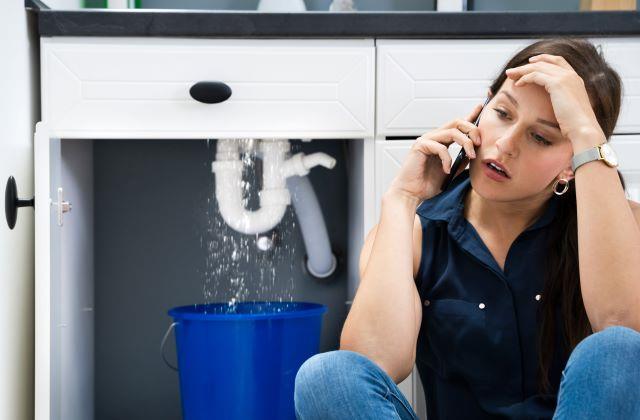A landlord admits to a water leak that was not fixed while the tenant occupied the property, and is now refusing to refund the deposit.
A Property24 Reader, says midway through her lease she noticed that the water bill was higher than the previous months and contacted the landlord who confirmed that there was a water leak.

READ: Have you got what it takes to be a landlord?
“The leak was not fixed as the landlord stated that they will need to fix around five units first so the leaking water continued for some time. I did continue to pay my water bill until I noticed that I was paying three times what the initial rate was,” she says.
The reader, says she moved out and the landlord is refusing to give back her deposit because he says she must pay for the water leaks.
“It has been over a month and a half since I moved out and haven’t received a single cent from my deposit. I was told that the body corporate has to do a full recon first before I can get my deposit. Does this sound right?
READ: Weighing the risks of home defects that have been repaired
Linda Jordaan, attorney and conveyancer at Herold Gie Attorneys shares the following advice:
"An owner of a property in a sectional title scheme will be invoiced for water consumption on a monthly basis by the managing agent for the scheme, unless the owner has a separate Council water meter for his unit and is invoiced by the Council.
"If there is no separate water meter, a water leak can affect any number of units in a scheme. It is the duty of the trustees of the body corporate to establish where the leak is and whether it falls on common property and is the responsibility of the body corporate to repair or whether it is a leak inside a unit which would be the responsibility of the property owner to repair.
"The trustees need to ensure that a leak is repaired as quickly as possible and to report such leaks and any resultant damage to the insurers for the scheme. Until the leak is repaired, it would be difficult for the managing agent to issue accurate statements for water consumption to the owners of the affected units and it would therefore be prudent for them to charge an estimated amount based on an average usage for those months prior to the leak," says Jordaan.
READ: Insurance in your rented home | What are the responsibilities of the tenant and landlord?
She goes on to say that the problem of the leak needs to be managed by the landlord, as the owner of the property, and not by the tenant and the applicable terms of the lease agreement need to be considered in this regard.
"A tenant typically pays for actual consumption charges during the period of the lease and not charges resulting from a fault at the property, such as a leak, unless such leak was caused by the tenant or visible to the tenant and not timeously reported.
"A tenant cannot be held liable for water consumption attributable to a leak and the body corporate, together with the managing agent, would have to do a reconciliation of the water account for all affected owners and adjust the monthly accounts accordingly," says Jordaan.
READ: Who is responsible for home maintenance, tenant or landlord?
She says that a landlord cannot retain the full deposit and many only retain an amount based on the tenant's average monthly water consumption prior to the water leak. The balance of the deposit must be refunded to the tenant, less any other amounts for which the tenant is liable, in accordance with the applicable provisions of Section 5 of the Rental Housing Act 50 of 1999, as amended.
Want all the latest property news and curated hot property listings sent directly to your inbox? Register for Property24’s Hot Properties, Lifestyle and Weekly Property Trends newsletters or follow us on Twitter, Instagram or Facebook.








